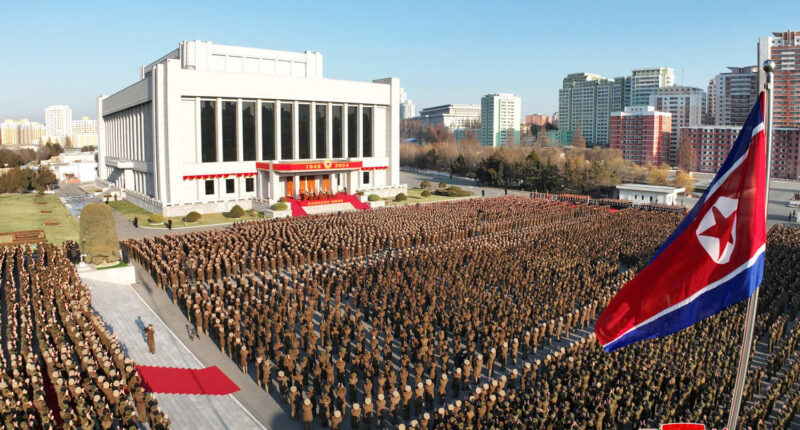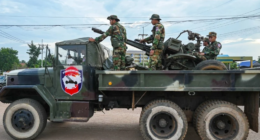A North Korean defector, who fled to South Korea over a decade ago, was apprehended after attempting to return to North Korea using a stolen bus. The incident occurred on the Tongil Bridge, the last civilian border checkpoint before the heavily fortified demilitarized zone (DMZ) separating the two Koreas.
According to Gyeonggi Bukbu Provincial Police, the 35-year-old man drove approximately 800 meters on the bridge before crashing into barricades. The area is heavily monitored by military forces, reflecting the strict security measures in place along one of the world’s most fortified borders.
Having defected in 2011, the man had been living in South Korea but struggled to establish a stable life. He reportedly worked a series of day-to-day jobs but faced ongoing economic difficulties and emotional distress from being separated from his family in North Korea. Police revealed that the man expressed deep feelings of loneliness and longing for his family, stating, “He’s been living alone in South Korea and was under economic difficulties.”
This case highlights a troubling trend among North Korean defectors. Since the end of the Korean War in 1953, more than 34,000 defectors have settled in South Korea. However, in the last decade, around 30 individuals have attempted to return to their home country. Advocates for defectors argue that these instances reflect the significant challenges many face when integrating into South Korean society, including economic hardship and social isolation.
The defector, whose identity has not been disclosed, now faces multiple charges, including vehicle theft, driving without a proper license, violation of military base protection laws, and potential breaches of the National Security Law. Authorities are continuing their investigation into the circumstances surrounding his attempted return.
The incident raises critical questions about the experiences of defectors in South Korea, where many struggle with cultural differences and the psychological impacts of their past. While South Korea offers a more open society compared to the repressive regime in North Korea, the transition can be fraught with difficulties, leaving some feeling alienated and nostalgic for their homeland.
As the situation develops, it serves as a stark reminder of the complexities faced by those who have fled oppressive regimes in search of a better life. The emotional and economic burdens carried by defectors like this man underscore the urgent need for support systems to aid their integration into South Korean society.









